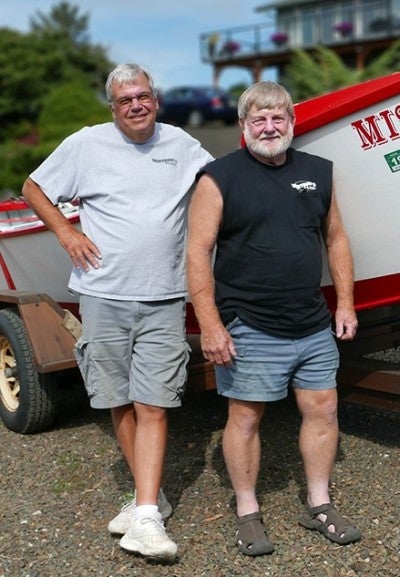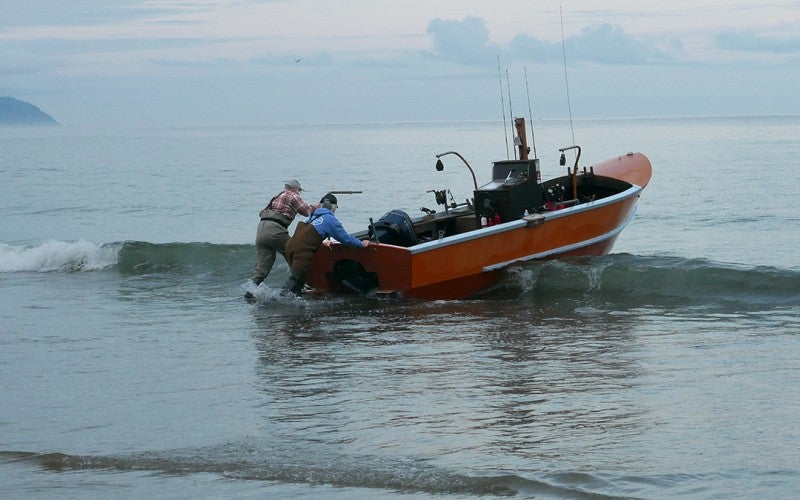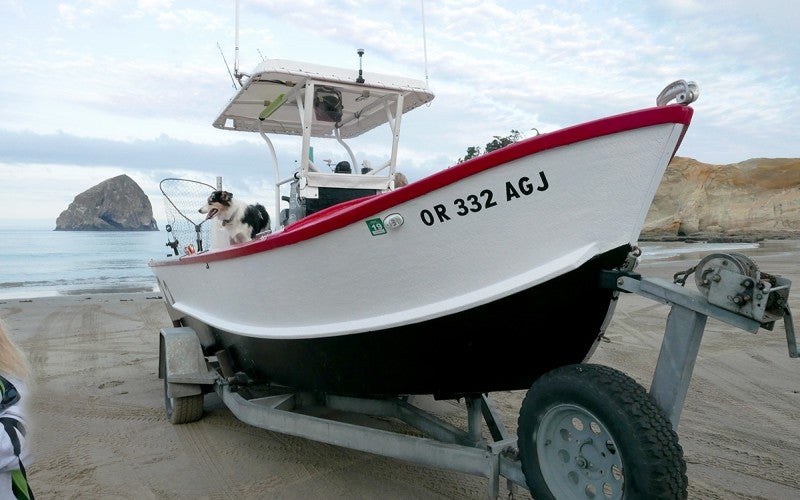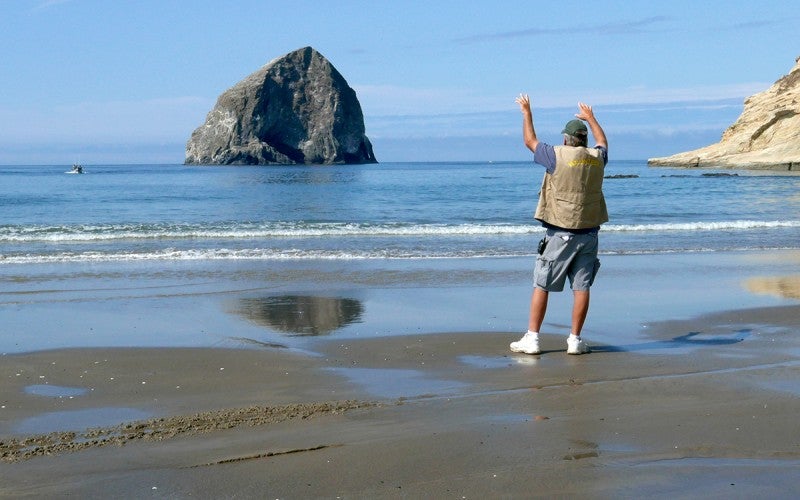Skip Bailey (Cloverdale) is a doryman in the best tradition of Pacific City. At the age of fourteen, Bailey and his close friend were already proud owners of a double-ended dory boat. In keeping with the tradition, they launched early morning off the beach. They would row through the surf, “silver fish” for salmon and cod during the day, and then would sell their haul at the local fish market.
Bio
Skip Bailey is a doryman in the best tradition of Pacific City. At the age of fourteen, Bailey, along with his close friend, were already proud owners of a double-ended dory boat. In keeping with the tradition, they launched early morning off the beach. They would row through the surf, “silver fish” for salmon and cod during the day, and then would sell their haul at the local fish market. A dory is a small, shallow-draft boat,16- to 23-feet long with high sides, a flat bottom, and a pointed bow and stern. For centuries dories have been used as traditional fishing boats in both coastal waters and on the open sea. Although early dories were made of wood, today’s breaker dory is constructed of carbon fiber and fiberglass, which don’t rot like wood. Pacific Beach’s dory tradition is unique to the Oregon Coast. It came about when seining (catching fish with a large net) was outlawed on the Nestucca River in 1927. To adapt, the local fishermen began building double-end dories that they launched off the beach at Cape Kiwanda, an area somewhat buffered from the surf. Before the invention of outboard engines, dorymen had to row out to sea. Today’s dorymen tilt-drop their boats from trailers into the surf, then push their boats out far enough into the surf to lower and power up the engine(s). On the return, with the throttle full open, the smooth-bottomed dories power onto the beach in spectacular fashion, then slide to a stop. Dorymen used to be a tight-knit group. “In the past…everybody looked out after each other, communicated . . . by phone, on the beach, at the tavern, wherever...everybody knew we had to work together and take care of each other…[Today] it's all about me…more independent.” Nonetheless, Bailey acknowledges that when trouble arises out in the bay, help is there.





